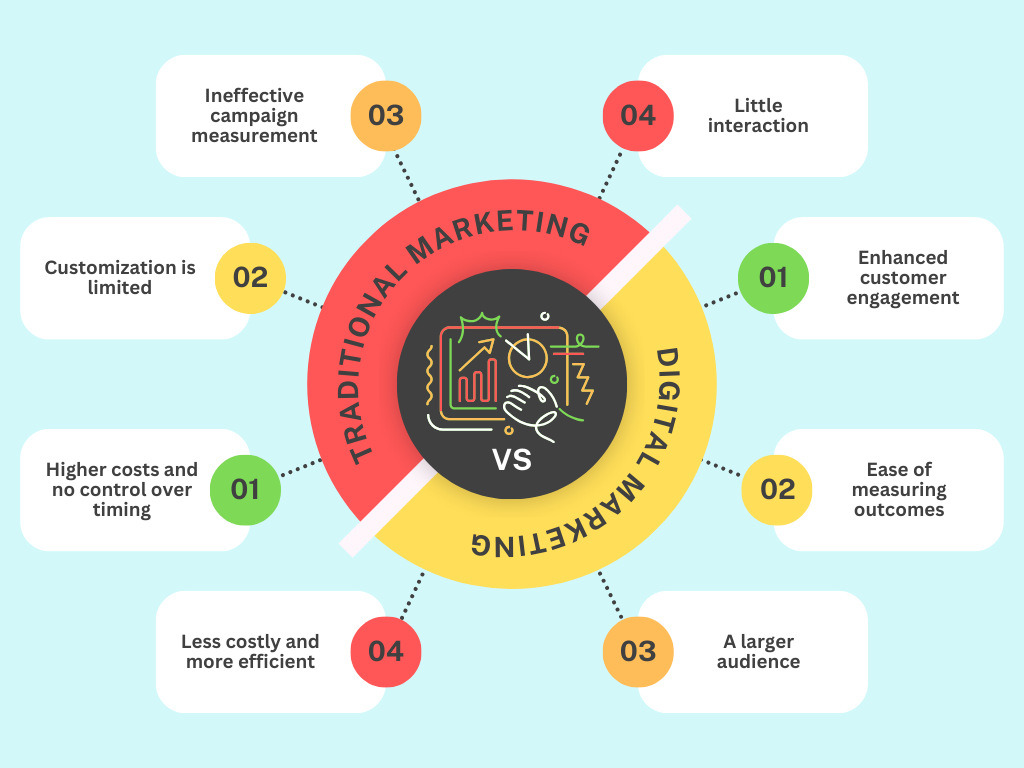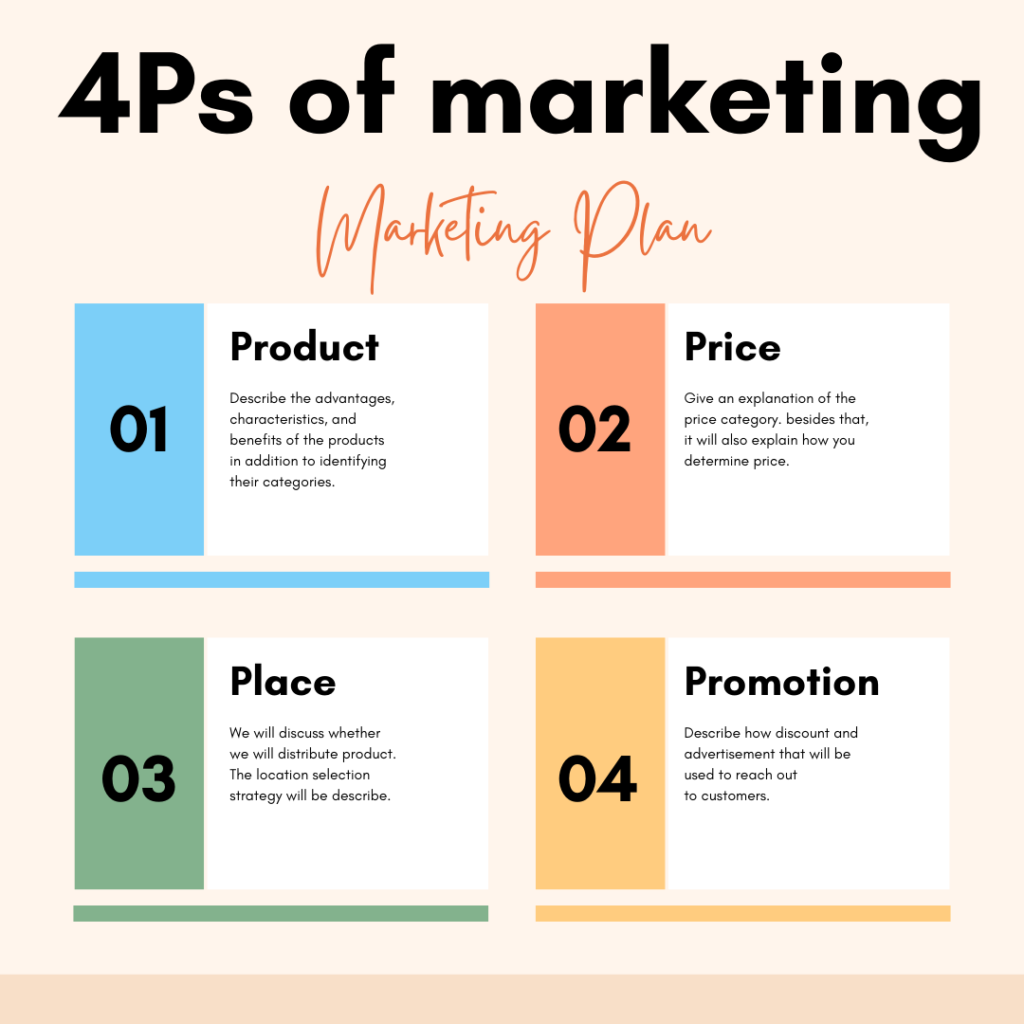Welcome to my blog this will help you to prepare yourself for digital marketing interview questions. I’ve covered all the possible questions that the interviewer can ask you. If you are a beginner or experienced you just have to go through this blog and your preparation will be completed in just 30 to 45 minutes.
We’ll cover all questions for the beginner level then we’ll share question for the experienced level. Let’s get started for new career growth in your life with us.
As we know you are here for digital marketing interview questions so you may know what digital marketing is and how it works in the world.
We would like to elaborate on the concept of this. Digital marketing is a way of advertising with the help of digital platforms like Social media, Search engine browsers, Apps, etc.
There are many paid social media or search browsers where you can show your ads to your target audiences. They will provide data on the audience in various segments like gender, interest, income, education, behavior, activity, relationships, etc. You can use these data to show your target audiences. So, you can easily get conversion by using digital marketing strategies.
Beginner Level Interview Questions
- What is SEO
SEO (Search Engine Optimization) is the process of improving a website’s visibility on search engines like Google, Bing, Firefox, etc. The goal is to increase organic (non-paid) traffic by optimizing various elements of the site.
2. What are the types of SEO?
- On-Page SEO: Optimizing individual pages with relevant keywords, meta tags, headers, and content structure to improve search engine rankings.
- Off-Page SEO: Building external signals of trust and authority, such as backlinks building from other websites.
- Technical SEO: Ensuring that the website’s infrastructure is optimized for crawling and indexing by search engine bots. This includes website speed, mobile-friendliness, and secure connections.
3. What is the difference between traditional marketing and digital marketing?
| Traditional Marketing | Digital Marketing |
| Channels: Utilizes offline channels like print (newspapers, magazines), broadcast (TV, radio), direct mail, and outdoor advertising (billboards). | Channels: Utilizes online platforms such as websites, social media, email, search engines, and mobile apps. |
| Targeting: Often broader and less targeted, demographics cannot be measure. | Targeting: Highly targeted and allows for segmentation based on behavior, interests, demographics, etc. |
| Engagement: It has a one-way communication, consumers receive messages but have limited interaction with the brand. | Engagement: It has two-way communication, consumers can interact with brands through comments, shares, and direct messages. |
| Cost: It is expensive due to production and distribution costs. | Cost: It is more cost-effective, with options for various budgets and flexible spending. |

4. What is hosting?
Web Hosting is a service that allows individuals and organizations to make their websites accessible on the Internet. When you host a website, you store its files (like HTML, images, and scripts) on a server, which is a powerful computer that is always connected to the internet.
5. What are the types of hosting?
Shared Hosting: Multiple websites share the same server resources, making it cost-effective but potentially slower during high traffic.
VPS Hosting: Virtual Private Server hosting gives you dedicated resources on a shared server, offering more control and better performance.
Dedicated Hosting: You rent an entire server for your website, providing maximum control and resources but at a higher cost.
Cloud Hosting: Your website is hosted across multiple servers, allowing for scalability and better reliability.
Managed Hosting: A service provider manages the server and its maintenance, allowing you to focus on your website’s content.
6. What is domain?
A Domain Name is the address of your website that users type into a browser to access it (e.g., www.example.com). It’s a user-friendly way to identify your website, as IP addresses (which computers use to locate each other) are difficult to remember.
Key points about domain names:
- Components: A domain name typically consists of two parts: the name (e.g., “example”) and the extension (e.g., “.com,” “.org,” “.net”).
- Registration: Domain names must be registered through a domain registrar, and you typically pay an annual fee to maintain ownership.
- DNS: The Domain Name System (DNS) translates domain names into IP addresses, allowing browsers to load your website.
In summary, hosting provides the space for your website files, while a domain name serves as the address that directs users to those files. Both are essential for getting a website online.
7. What are the Google tools?
Google offers a wide range of tools that can help with various aspects of online activity, from marketing and analytics to productivity and collaboration.
1. Google Analytics
2. Google Search Console
3. Google Ads
4. Google My Business
5. Google Tag Manager
6. Google Drive
7. Google Docs, Sheets, and Slides
8. Google Forms
9. Google Keyword Planner
10. Google Trends
11. Google Data Studio
12. Google Optimize
13. Google Alerts
8. What is Google keyword planner?
It is a part of Google Ads, this tool helps you research keywords for your campaigns, providing insights into search volume and competition.
9. What is alt text in the image?
Alt text (short for alternative text) is a brief description of an image that is embedded within the HTML of a webpage. It hepls crawler to understand the image purposes.
Alt text helps visual understanding users who rely on screen readers to understand the content of an image.
If an image fails to load, the alt text appears in its place, providing users with a description of the missing content.
When writing alt text, it’s best to keep the description concise and relevant to the image’s context on the page. For example, an image of a black cat sleeping on a windowsill could have the alt text: Black cat sleeping on a sunny windowsill.
8. What is Fevicon?
A favicon (favorite icon) is a small icon or image that appears in a browser’s tab next to the website’s title, in bookmarks, and in other parts of the browser interface. It helps users visually identify a website quickly, even when multiple tabs are open.
9. What is 4Ps of marketing
The 4Ps of Marketing, also known as the Marketing Mix, represent the four key elements that must be carefully considered for a product or service to succeed in the market.
Product
- Refers to what the company is selling, whether it’s a physical good, service, or experience. It involves product design, quality, features, branding, and packaging. The goal is to ensure the product meets customer needs and stands out from competitors.
Price
- Refers to pricing strategies impact revenue and market positioning. Factors like production cost, perceived value, competitor pricing, and demand play roles in determining the price.
Place
- Refers to how and where the product is distributed and sold. It focuses on making the product available to the target customers, whether through online platforms, physical stores, or both.
Promotion
- This includes advertising, public relations, social media marketing, sales promotions, and other methods.

10. What is bidding strategies of advertisment?
Google Ads offers several types of bidding strategies that advertisers can use to optimize their campaigns based on specific goals, such as driving traffic, generating conversions, or increasing brand awareness. Here are the main bidding types in Google Ads:
1. Cost-Per-Click (CPC)
2. Cost-Per-Thousand Impressions (CPM) Bidding)
3. Cost-Per-Acquisition (CPA) Bidding
4. Cost-Per-View (CPV) Bidding
These questions will help you to prepare your digital marketing interviews. I hope you will crack your interview and get questions from this blog. Thankyou for reading and explore my others blog for part-time online jobs.
